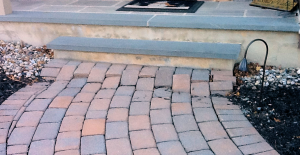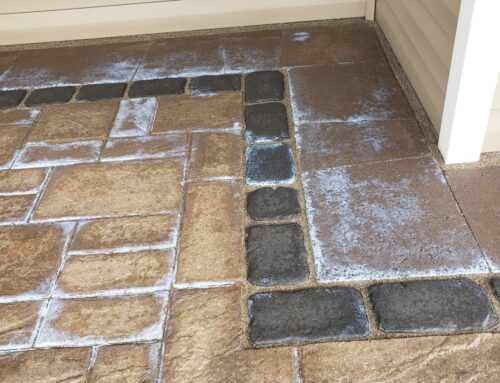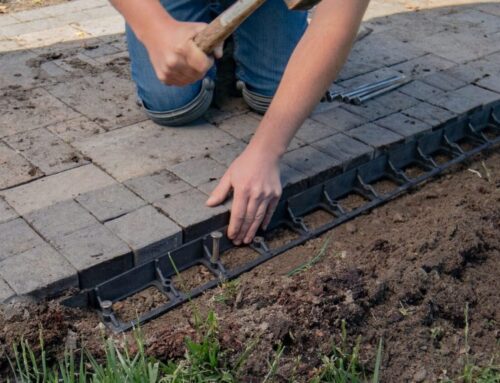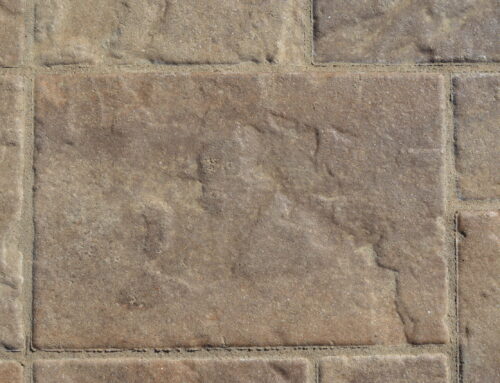Spring has finally arrived! There may be snow in some shady spots, but that will soon be gone. As your walking around in your yard, you may have noticed pavers that have ‘buckled’ or shifted over the winter. In some cases, the pavers appear level, but there are cracks or gaps in the joints. What causes these problems? Here’s why this happens and what to do about winter weather damage to pavers.

Winter Weather damages pavers in Tamiment, PA
In northern areas where the ground freezes, these problems are very common. The deepest layer of ground remains frozen, but on warmer, sunny days the upper layers will cycle between freeze and thaw creating movement. This movement occurs close to the surface, directly under the patio or walkway. When the ground shifts, so do the pavers. This spreads the joints and can cause cracks or gaps in the sand.
A well constructed patio or walkway, with properly compacted base materials and a solid edge restraint, will have little or no damage during these freeze/thaw cycles. As the ground warms, the pavers will normally settle back into place. Polymeric sand used in the joints is very forgiving and will usually heal itself. Any minor cracks that occur can be easily repaired.
Paver patios or walkways that were not constructed properly can suffer severe structural damage. Insufficient base material or improper installation will allow the pavers to shift as the ground moves during any freeze/thaw cycle. If the edge restraint is failing or missing, there is nothing to prevent the pavers from shifting as the ground moves. In these cases, we can repair the affected areas by re-grading the base, resetting the pavers and repairing the edging to remedy the problem. That’s one of the benefits of segmental pavers: it is much easier to repair paver patios than large slabs of concrete.
If you notice any gaps in your joints or pavers that have shifted, contact us. These problems are relatively easy to fix, if caught early on. Over time, the problems will get worse and become more expensive to repair.



